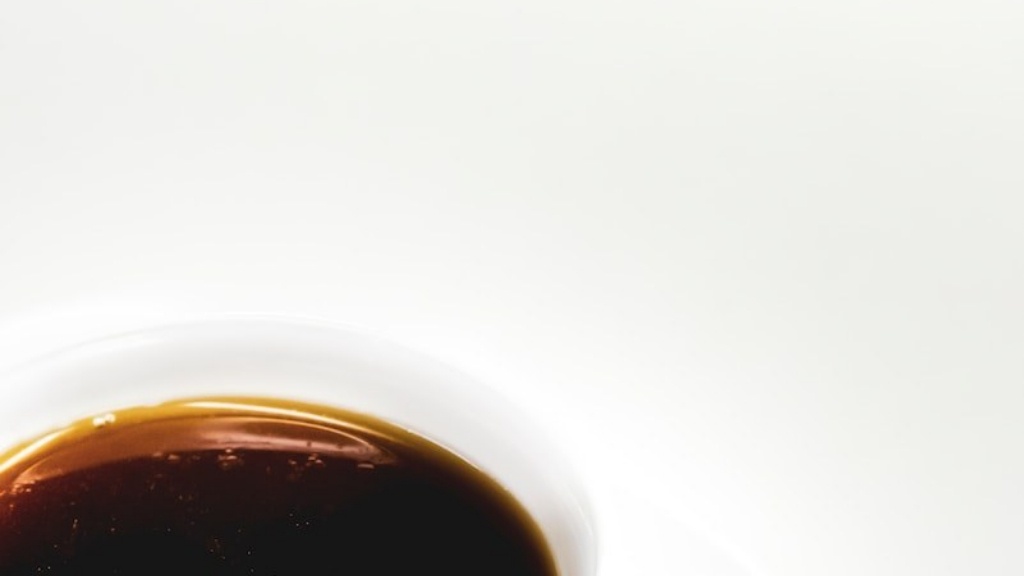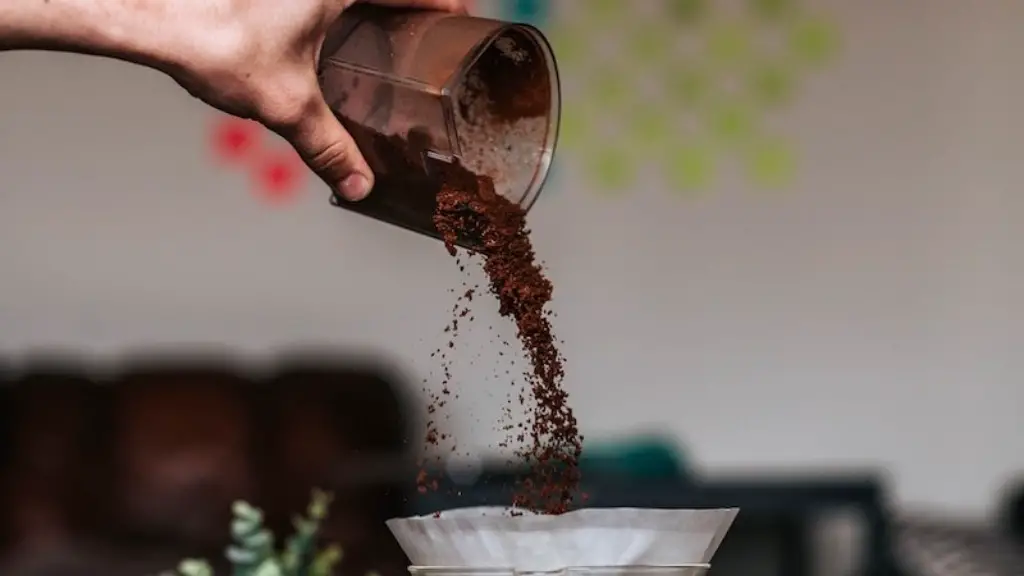One of the peculiar mysteries of modern life is why drinking coffee makes us want to poop right away. Many of us have experienced this seemingly bizarre phenomenon, which can be either embarrassing or inconvenient, depending on the situation. In this article, we take a look at the scientific reasons behind this unique phenomenon and explore why drinking coffee can provoke an urgent desire to go to the bathroom.
Before getting into the nitty-gritty of why coffee produces this effect, it’s important to understand what happens during regular digestion. In general, digestion begins the moment food enters the body, and the digestive system is responsible for breaking down the macronutrients (fats, proteins, and carbs) into pieces that can be absorbed into the bloodstream. As digestion progresses, toxins and waste products are expelled from the body, either through the breath or through the anus.
Coffee is a stimulant, and it alters the functioning of the digestive system by increasing the amount of acid produced in the stomach. According to Dr. William Chey, gastroenterologist and Professor at the University of Michigan in Ann Arbor, “Coffee stimulates the muscles of the colon, which in turn increases motility, or the waves of muscular contractions that move material through our large intestine.” In short, coffee speeds up the digestion process, causing the body to dispose of toxins and waste products more quickly than usual through the anus.
In addition to its stimulating effects on digestion, coffee also has a laxative effect on the body. According to Dr. Charles Holcombe, gastroenterologist at the University of California, Los Angeles, “Coffee is known to stimulate the production of gastrin, a hormone that can relax the muscles of the large intestines and thus increase laxative function.” This laxative effect of coffee can lead to an increase in intestinal motility and subsequent urges to go to the bathroom.
It’s also important to recognize the effect of coffee’s caffeine content on the body. Caffeine has a stimulating effect on the body, and it is known to increase stimulation of the nerves in the colon and rectum, leading to increased urges to go to the bathroom. Research has shown that as little as one to two cups of coffee can induce an urge to defecate, without actually having a laxative effect on the body. This is because caffeine directly stimulates the colon muscles, causing them to contract and expel waste.
Finally, it’s important to note that coffee can act as a diuretic, which means it increases urine output and flushes water from the body. Therefore, drinking coffee can lead to an increased need to pee, and this could further add to the urge to go to the bathroom. Additionally, if you are already dehydrated, the diuretic effect of coffee may exacerbate this sensation.
Types of Coffee and Its Effects
The kind of coffee and the amount consumed can also influence our urge to go to the bathroom. Generally, caffeine content increases with the more intense roasts, such as espresso and cold brew. Since these coffees contain higher levels of caffeine, they can lead to an even more urgent need to go to the bathroom. On the other hand, coffees with a lower caffeine content, such as decaf, may lead to much less of an urge to use the restroom. Decaf generally produces much less of an effect on the body, and therefore many of the side-effects associated with caffeinated coffee are more subdued.
It’s important to note that other ingredients in coffee, such as sugar and artificial flavoring, can influence our urge to go to the bathroom. For instance, sugar can pull water into the intestine, which can lead to increased motility. Artificially-sweetened coffees and flavored coffees can also lead to water retention in the intestine and thus, an increased urge to go to the bathroom. Furthermore, many flavored coffees contain ingredients such as milk, which can be difficult to digest and can lead to bloating, flatulence and a feeling of urgency to use the restroom.
The Impact of Coffee on Gastrointestinal Health
It’s important to recognize that coffee is not always bad for your gastrointestinal health. In fact, according to Dr. Chey, research has indicated that coffee can have a protective effect on the digestive system. “Research indicates that coffee consumption may be associated with a lower risk of certain diseases, such as Crohn’s, diverticular disease and gallstones,” he says. Therefore, it seems that coffee’s stimulating effects can be beneficial for some individuals.
Dr. Holcombe agrees, noting that “moderate coffee consumption can be beneficial for some people.” He adds that “caffeine can help to stimulate the gastrointestinal tract and relieve some of the symptoms of IBS and other GI-related disorders.” In addition, Dr. Holcombe suggests that coffee can help those with acid reflux or heartburn, due to its slightly acidic nature.
On the other hand, it’s important to recognize that coffee can also lead to negative effects. Dr. Chey notes that “too much coffee can cause heartburn, indigestion, or diarrhea in some people.” Therefore, it’s important to be mindful of your coffee intake, as it can lead to both positive and negative effects on the body.
How to Avoid the Urge to Use the Bathroom
If you’re tired of feeling the urge to run to the bathroom after every cup of coffee, there are certain steps you can take to reduce this feeling. First, you can try switching to decaf coffee. Decaf coffee still contains some caffeine, but the amount is much lower than in regular coffee, so it may lead to much less of an urge to use the bathroom. Additionally, you can try ditching the sugar and artificial flavoring, as these ingredients can lead to water retention in the intestine and thus, an increased urge to go to the bathroom.
Finally, if you’re looking for a gentler way to drink coffee, you can opt for a blender-made coffee or cold brew. Blender-made coffee is much milder than regular coffee, and it doesn’t contain the same stimulating effects on the digestive system. Similarly, cold brew has a comparatively mild taste and a lower caffeine content, so it can be a good choice for those looking for a gentler coffee experience.
Coffee Intake and Pre-existing Conditions
It’s important to be mindful of any pre-existing conditions when it comes to coffee consumption. According to Dr. Holcombe, “Coffee has a stimulating effect on the body and can exacerbate certain pre-existing conditions, such as anxiety or IBS. If you suffer from such conditions, it’s important to be mindful of your coffee intake. Talk to your doctor or nutritionist to determine how much caffeine is safe for you to consume.”
Dr. Chey adds that coffee intake should also be moderated for pregnant women. “Caffeine is a stimulant and should be avoided in pregnant women,” he says. “Caffeine can pass through the placenta and can cause complications in the fetus. It’s best to avoid caffeine during pregnancy.”
Overall, it’s clear that drinking coffee can lead to an urgent urge to use the bathroom. However, it’s important to note that the kind of coffee and amount consumed can influence this feeling. In addition, it’s important to recognize that coffee can have both positive and negative effects on the body and it’s important to be mindful of any pre-existing conditions that may be exacerbated by coffee intake. Finally, if you’re looking to reduce the urge to use the bathroom after drinking coffee, there are certain steps you can take, such as switching to decaf or ditching the artificial flavoring.
Coffee and Appetite Suppression
Coffee has also been known to act as an appetite suppressant. In other words, it can help to reduce hunger cravings, leading to reduced calorie intake, which can be beneficial for weight loss and overall health. According to Dr. Chey, research has indicated that caffeine can suppress the hunger hormone, ghrelin, leading to a feeling of fullness and reduced hunger.
Dr. Holcombe adds that coffee can also act as an appetite stimulant. “Caffeine has been shown to act on hunger receptors in the brain, leading to an increase in appetite,” he says. “In addition, coffee can act as a diuretic, which can lead to dehydration, which can make us feel hungrier.” Therefore, it’s important to be mindful of coffee intake, especially if you’re trying to reduce your appetite.
Conclusion
In conclusion, drinking coffee can lead to an urgent need to use the restroom due to its stimulating effects on the digestive system. It can increase motility, leading to an increase in intestinal contractions and the expulsion of toxins and waste products. Moreover, coffee can have a laxative effect on the body, and its caffeine content can lead to stimulation of the nerves in the colon and rectum, causing an increased urge to use the bathroom. Additionally, it can act as a diuretic, which can further add to the urge to go to the bathroom. It’s important to note that the kind of coffee and amount ingested can influence this feeling, and it’s important to be mindful of any pre-existing conditions that may be exacerbated by coffee intake.




